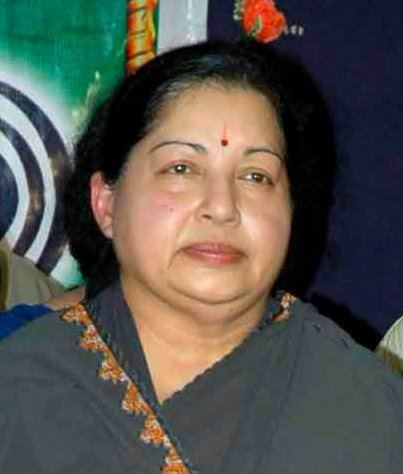Month: February 2014
Doctrine of necessity and Bias
Doctrine of necessity overrides
the principle of apprehended bias
 Facts of the case:
Facts of the case:
Ms. J. Jayalalitha was elected to the Legislative Assembly of Tamil Nadu on or, the AIADMK ticket in the General Elections held in June 1991 and on being elected as the leader of the party she was sworn-in as the Chief Minister of the State. On 2.10.1992, Dr. Subramanian Swamy preferred a petition to the State Governor under Article 192 of the Constitution of India alleging that the Chief Minister had incurred a disqualification of being a member of the Legislative Assembly of the State, in that, she being a partner in the partnership firm run in the name and style of Messrs Jaya Publications had entered into a contract with the State Government and which contract was subsisting on the date of the petition, in view of sub-clause (e) of clause (1) of Article 191 of the Constitution read with Section 9A of the Representation of the People Act, 1951
The question was whether the Chief Election Commissioner against whom she had expressed her apprehension of Bias, should be recused from the proceedings or he has to act in an advisory capacity, in case of dead lock, on the basis of Doctrine of Necessity. Continue reading “Doctrine of necessity and Bias”
Public International Law
 An Introduction to Public International Law
An Introduction to Public International Law
Definition of Public International Law:
Public International Law is that branch of law which deals with code of conduct including rights and duties of Sovereign States. The term sovereign states include other analogous entities like International Organisations, Inter-Governmental Organisation.
With phenomenal increase in global trade in last century popularly called Globalisation, many laws affecting Corporations and Individuals having presence in multiple countries and jurisdictions are also part of Public International Law.
Private International law is different from Public International Law in as much as the former deals with rights, liabilities and resolutions of disputes of private citizens or corporations with reference to the principles of conflict of laws.
Sources of Public International Law: Continue reading “Public International Law”
Death Sentence and Mercy Petition: Balancing the Justice.
 Balancing between the Death Sentence, Mercy and Speedy Justice.
Balancing between the Death Sentence, Mercy and Speedy Justice.
Execution of death sentence by hanging: Validity.
[T]he State has discharged the heavy burden which lies upon it to prove that the method of hanging prescribed by Section 354(5) of the CrPC does not violate the guarantee right contained in Article 21 of the Constitution. The material shows that the system of hanging which is now in vogue consists of a mechanism which is easy to assemble. The preliminaries to the act of hanging are quick and simple and they are free from anything that would unnecessarily sharpen the poignancy of the prisoner’s apprehension. The chances of an accident during the course of hanging can safely be excluded. The method is a quick and certain means of executing the extreme penalty of law. It eliminates the possibility of a lingering death. Unconsciousness supervenes almost instantaneously after the process is set in motion and the death of the prisoner follows as a result of the dislocation of the cervical vertebrae. Continue reading “Death Sentence and Mercy Petition: Balancing the Justice.”
Fraud avoids all acts.
Fraud avoids all judicial acts, ecclesiastical or temporal
Fraud is a deception deliberately practiced to achieve unfair or unlawful gain. Fraud apart from being a criminal offence is also a civil wrong in India, as at most places. It is defined by section 17 of Contract Act of India. Misrepresentation is defined by section 18 of said Act. The definition of fraud and misrepresentation is as under:
Definition of fraud:
“Fraud” means and includes any of the following acts committed by a party to a contract, or with his connivance, or by his agents, with intent to deceive another party thereto his agent, or to induce him to enter into the contract;
(1) the suggestion as a fact, of that which is not true, by one who does not believe it to be true;
(2) the active concealment of a fact by one having knowledge or belief of the fact; Continue reading “Fraud avoids all acts.”
